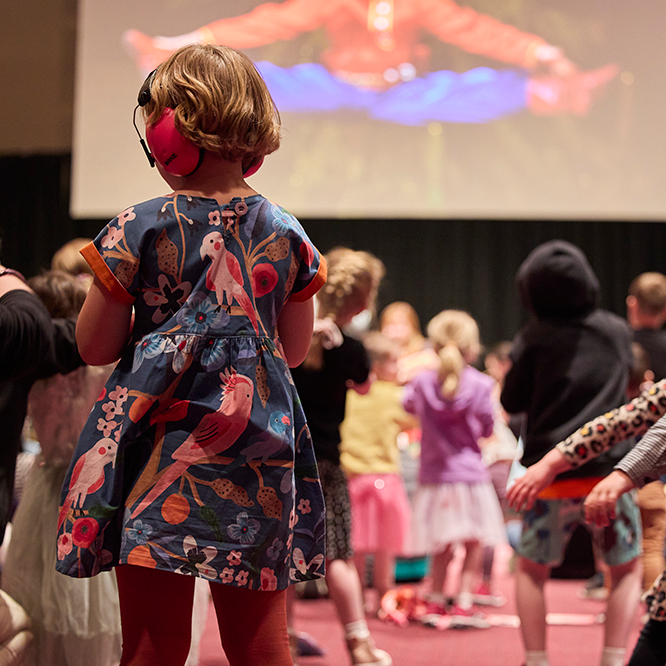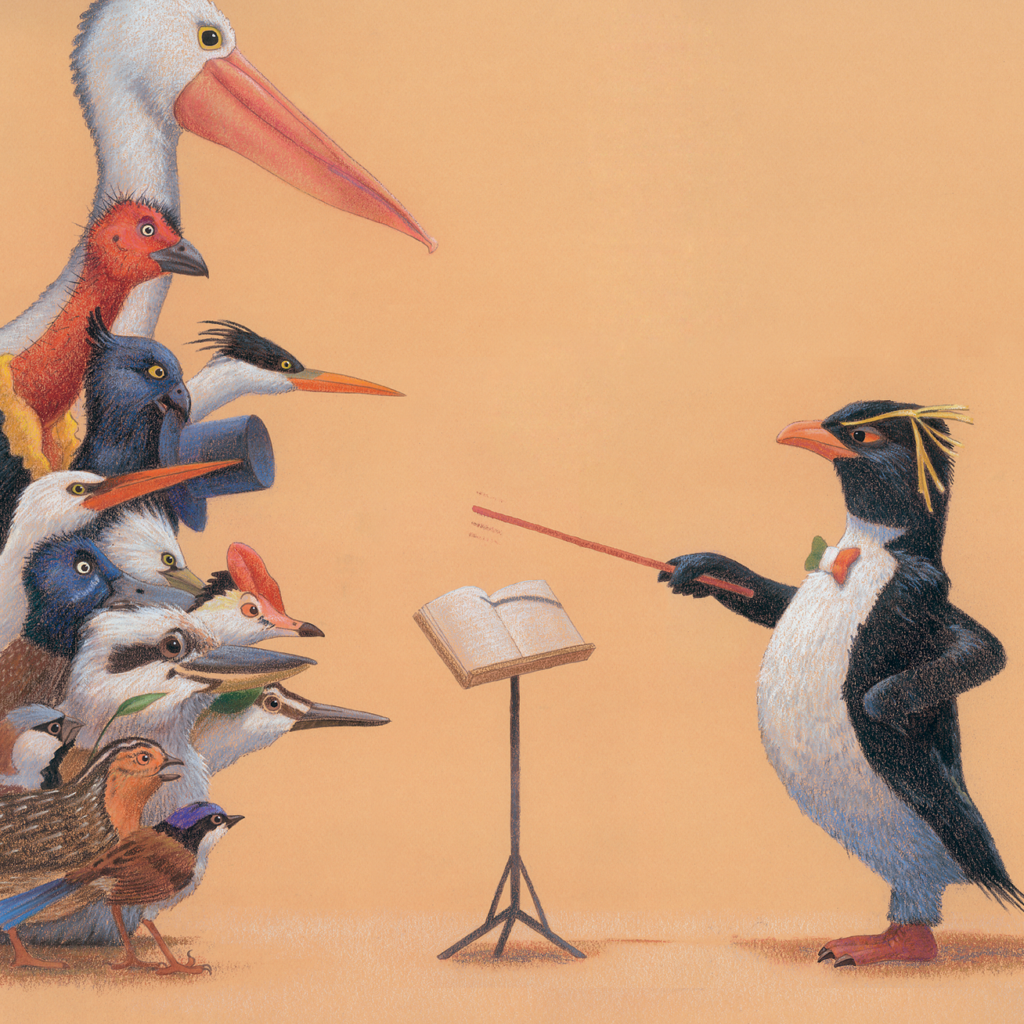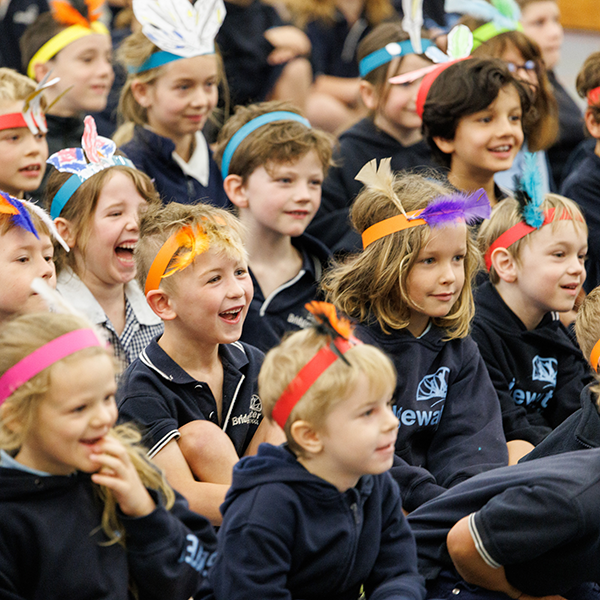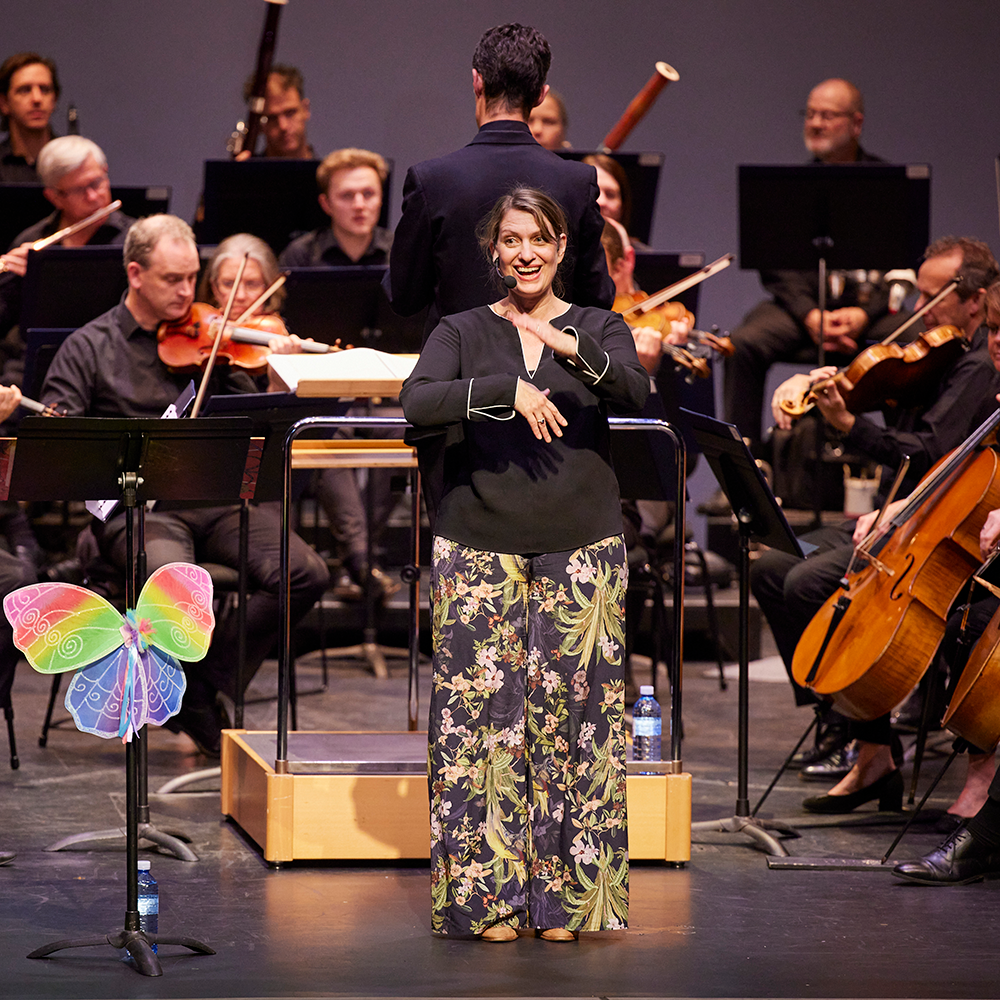MUSOS OF THE ASO: Joshua Oates, Principal Oboe
- Musician Spotlight
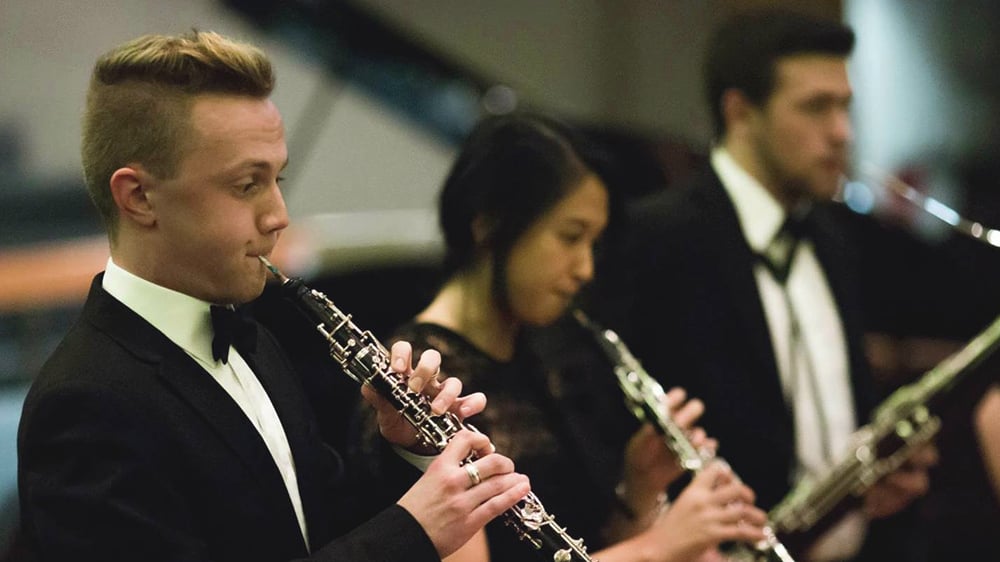
Meet one of the ASO’s newest recruits, Principal Oboe Joshua Oates. Josh describes music as being a driving influence or a powerful undercurrent, and he can’t think of a moment in his life that hasn’t somehow been touched by it. He’s only been with the ASO since January, after winning the coveted role. Josh fills us in on his audition journey, and how he feels about being back in his hometown and joining the colleagues that helped shape his first experiences in a professional orchestra.
Describe your personal audition story:
The first time the position was advertised, I applied via recorded audition, as I was studying and working in Germany. I came close to winning but there was no appointment. When the audition was advertised the second time, I decided to bite the bullet and come in person. Because of my commitments in Germany, I was only able to arrive a day and a half before the audition and to make matters worse, I caught some sort of bug on the plane, which meant I was wiped out and could barely eat the day before. By the audition, I had just enough energy to get myself there and give everything I had.
How many auditions have you had to do before you secured the role with the orchestra?
Counting only auditions for jobs, professional training programs or casual employment, I’ve done 16 auditions, for more than 9 different orchestras.
How do you prepare for an audition?
Everyone prepares differently, but currently, I tend towards a three-pronged approach:
First: I ensure I am as physically fit in my technique and playing as I can be. This means building and polishing a ‘toolbox/palette’ of techniques, sounds, and characters that I’m then able to draw from during the audition.
Second: just as important is being psychologically fit, or seeking to be at one, mentally, with the process. For me, this is being able to imagine any scenario that could be presented to me on the day, so that I’m less likely to be thrown in the moment.
Third: it’s important to be as prepared as possible with the repertoire. There’s a huge background of musical language – from the composers and the way that your voice contributes, to the greater orchestral context. You have to think of it as the tip of the iceberg, but an iceberg that can be perceived, wholly and through a screen! ASO auditions are “blind”, meaning that the candidates play from behind a screen and neither the candidates nor the panel know who’s on the other side for the duration of the audition
Do you have any methods of overcoming your nerves on audition days?
For me, it’s all to do with the preparation. The knowledge that I am as prepared as I can be helps instil a sense of calm. It links in with being psychologically fit – I know that at any point, I’m on a journey to strive for progress and that any singular point in time is not a reflection of my worth, or even my ability, but just a snapshot of that moment.
Describe how you felt when you learned you had won the role with the ASO?
It almost felt like a dream – someone made a joke about me going back to play just one more excerpt and I was so in the zone that I picked my stuff up, ready to go! When it sunk in that it was a joke and I was being told that I’d won, I was relieved and overjoyed (and exhausted!)
As a new member of the orchestra, what are your initial feelings of being part of the ASO?
It’s been so nice to return to Adelaide and join the colleagues that helped shape my first experiences in a professional orchestra. The sense of community and support has been very welcoming, and I’m enjoying the responsibilities that come with the position.
Hometown: Adelaide
Education: Marryatville High School, Undergrad/Honours – Elder Conservatorium (Adelaide Uni), Fellowship – Sydney Symphony, Masters – Hochschule für Musik Saarbrücken
I knew I’d make a career in music when…
I was playing Sibelius’ 2nd symphony in a state music camp concert when I suddenly realised – I couldn’t imagine not playing oboe as my career!
If I weren’t a professional musician I’d be… some sort of chef or gardener – maybe combine the two and run a garden café! Alternatively, I’ve always been inspired by my mum, who’s a nurse, so maybe I would do something in health care, to give back to the community.
How did you choose the oboe?
I had started at Marryatville High School in the special music program, playing jazz guitar and piano, so I needed to start an orchestral instrument. They suggested some of the ‘endangered instruments’ such as oboe, horn or low brass and my mum (who had also studied at Marryatville!) had played oboe at high school, so we had one lying around. It was the simplest choice to make! After a few years, it just felt much more natural to me.
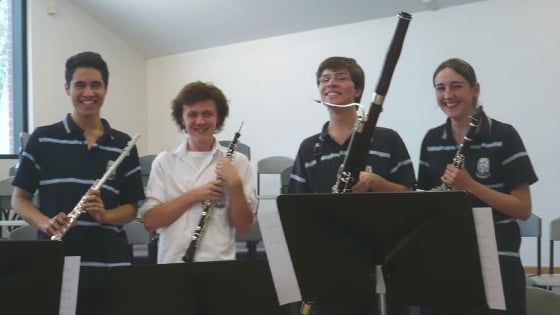
Is there anything special about your actual instrument/does it have a name/any quirks?
Oboes are generally all made to a standard template across the different brands, but each brand either factory-makes, hand-makes or does a combination. Oboists do however make our own reeds and we all have a unique way of doing it!
Describe the best thing about being a musician:
One of the best yet most difficult things is that you get to work doing something that you genuinely love to do. But it can make it quite difficult to draw emotional boundaries and find balance in your personal life.
Music to me is……… honestly, my whole life. Whether as the driving influence or as a powerful undercurrent, I can’t think of a moment in my life that hasn’t somehow been touched by music. My relationship with my closest friends was derived from our connection to music.
Who has influenced you most as a musician?
I’d have to say Diana Doherty – she has been my idol for so long. She was my mentor for 2 years during the fellowship program with the SSO. As a musician, oboist, and person, I’ve learnt so much from her.
If you could play a different instrument, which would you choose?
I’ve always wanted to play cello – even before I started oboe! I think it has something to do with the richness of the register and the versatility.
Which solo or moment in the oboe orchestral repertoire is your favourite?
My favourite tends to change depending on what I’m working on! In April we originally would have played the Brahms’ Violin Concerto – it’s such a shame Brahms never wrote an oboe concerto, but the solo in the opening of the 2nd movement would suffice! It represents all of the things I love about Brahms’ music: sweeping long phrases and gorgeous, singing melodies.
Your first orchestral concert memory and what made it memorable?
Funnily enough my first orchestral memory wasn’t as an oboist, but as a guitarist playing in the Primary Schools’ Festival of Music!!
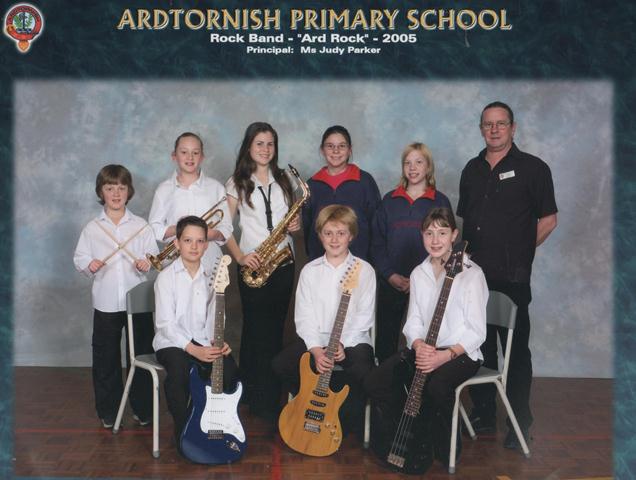
COVID-19 put a hold over ASO concerts; what did you miss the most about not being able to perform?
The thing I missed most was not being able to play with my colleagues. Being one of many parts that come together to perform is such a unique, irreplaceable experience.
Despite not being able to perform in concerts, you still had to remain fit to play for when concerts resumed. How much are you practising, and what repertoire are you selecting? Where in the house do you practise?
I’m aiming for three to five hours a day for practice, but it’s also important to make reeds and maintain my instrument as well. I’ve been using the hiatus to broaden my technique through studies, scales and technical exercises. Also, as I’m a new member of the orchestra, a lot of the upcoming concerts were full of new repertoire for me, so I’ve spent time preparing those as if for concerts!
I’m lucky enough to have a sunroom at the front of the house, so I’m able to use this for music – there’s even enough room for my reed desk!
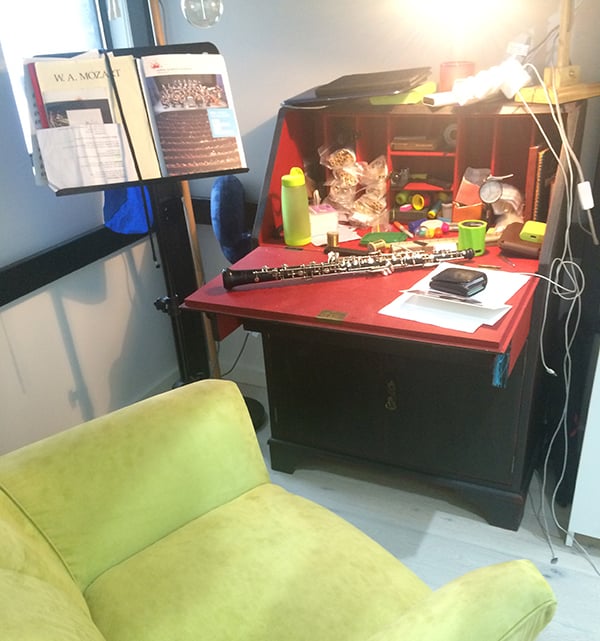
What is the thing you most craved whilst living in isolation?
I suppose the ability to leave the house spontaneously! At least if I went out to a café and had a brownie then I wouldn’t feel so bad. Being housebound, everyone can see how much chocolate I eat!
When you’re not performing or practicing, what do you enjoy doing in your free time?
I love to spend time in the garden, either on my own or with my mum – it’s something I’ve inherited from her, the veggie garden is my happy place. If not in the garden, I’m usually baking or in the kitchen.
When you’re not listening to classical music, what do you listen to?
As a teenager, my guilty pleasure was definitely musical theatre and I do indulge in it from time to time, but generally, I only listen to classical music.
Name three pieces of music you love, and why?
I don’t like to pick favourites! But, in this moment:
- Sibelius’ 2nd Symphony – it holds a place in my heart as the first piece I performed in an orchestra when I thought ‘I could actually do this for the rest of my life!’
- Any of the Mahler Symphonies or Strauss tone poems – there’s nothing like the feeling of being completely swept away by the super-sized orchestration and texture
- Schumann chamber repertoire – even though there’s not a great deal written specifically for oboe and piano, I love so much of Schumann’s recital repertoire. His writing seems to almost transcend the instrumentation.
What has been your most memorable musical experience as an audience member?
It’d have to be the premiere of Nigel Westlake’s Spirit of the Wild, for Diana Doherty with the Sydney Symphony. I was performing in the concert, but not in the concerto so I was able to quickly put down my instrument and sprint into the audience to listen!
Do you come from a musical family?
I do. My dad, Mark Oates, is a regular opera singer with the State Opera of South Australia and is well known in the Adelaide music scene; his parents both sing in community choirs and take music lessons. My mum also went to Marryatville and played the oboe in high school (as well as violin and piano!) and the tradition in her family was to be involved in the church music scene. From my generation, my brother and I were always very involved in extracurricular music.
Name three things people may not know about you?
- I am not a morning person – every morning is a battle to get me out of bed and nothing occurs in my mind before I have a coffee!
- I used to despise running (I even refused to run for the school bus!) and somehow now, I really enjoy it!
- In primary school I used to be part of a demonstration team for the organisation ‘Jump Rope for Heart’ – we would learn routines and then travel to SA schools far and wide to perform all sorts of tricks! I was also an earnest tap dancer at the time (I was quite bad, but I tried my hardest!)
What’s your idea of a perfect day in Adelaide?
Not too hot, not too cold, maybe a late summer day, with a cup of coffee or a glass of wine and some great fresh SA produce with friends and family!
What piece of music never fails to move you?
I think a lot of musical theatre can be quite moving. I’m always really moved by “I’d Give My Life for You” from Miss Saigon
What’s your favourite type of food?
That’s easy – chocolate!
What’s the weirdest thing in your fridge/pantry?
Someone in our household has insisted on hoarding jars of unnamed preserves in the fridge that (I’d hazard a guess) are around 15 years old!!!
What books are on your nightstand?
I’m making my way through ‘The Girl with the Dragon Tattoo’ series at the moment, but I have to confess – although I love reading, I’m not the best at prioritising it.
Do you speak any other languages?
When I undertook my Masters in Germany, one of the requirements of my studies was to achieve a basic level of German. Luckily, through my social interactions and work in orchestras, I was able to pretty quickly get a decent grasp on the language.
Do you have any hobbies?
Reading, cooking, gardening, running (to justify eating chocolate), eating chocolate, sleeping, drinking coffee!

